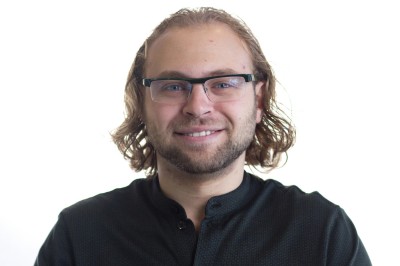
Hometown, Country:
New York City, USA
Academic history prior to coming to MIT:
BA in physics at NYU
What brought you to MIT?
I graduated from college with just enough understanding of quantum mechanics to know I wanted to learn everything I could about it, and it seemed to me that there would be no better way than to attempt to push back its frontiers! The research environment in which I felt most at home– the Harvard-MIT Center for Ultracold Atoms– is a vibrant community of scientists with many groups and labs all neighboring each other, pursuing interrelated scientific goals with complementary techniques. One can wander through the halls asking technical questions, borrowing equipment, discussing experimental prospects– the spirit of collaboration here has without a doubt added greatly to both the quality of my research and my quality of life.
What problem are you trying to solve with your current research and what are some possible applications?
Cold atoms are a uniquely wonderful tool for exploring quantum systems which have proven difficult to model mathematically and impossible to simulate with classical hardware. Our approach is different: we try to build real-world models that capture the essential characteristics of such systems in which the actors (cold atoms) are simple and well-isolated from their environment, but their interactions become incomputably complex as they evolve in relation to one another. It is for this reason that we call the experimental platform we’ve built a “quantum simulator,” and we hope to use it and other devices like it to elucidate states of matter that are poorly understood, such as quantum magnets, and to search for predicted but as yet undiscovered states such as high temperature superconductors and supersolids.
What interests you most about your research?
It’s very gratifying when you come to understanding the interactions of quantum particles well enough to get the most basic of ingredients to exhibit the collective behaviors of a much more complicated system. And the day-to-day experience is fascinating as well, as we get to try our hands at so many varied kinds of work– in the last years I’ve had to do optics, electrical engineering, 3D CAD, plumbing, computer simulations of strongly interacting particles, and machining, not to mention plenty of atomic and condensed matter physics!
What are your future plans?
I hope to continue research on fundamental physics at the quantum scale.
